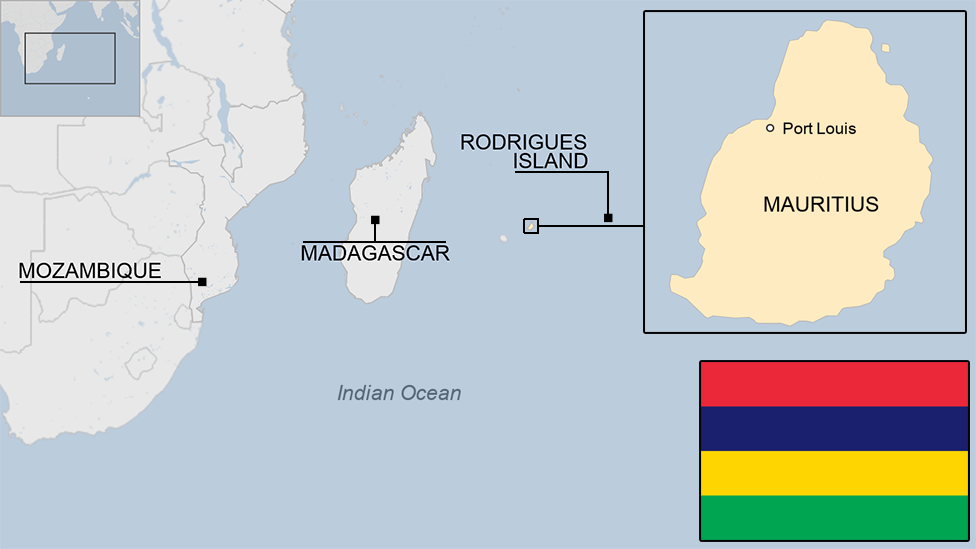Reunion profile
- Published
This page is no longer being updated. It was last updated on 19 July 2023

The remote Indian Ocean island of Reunion lies between Madagascar and Mauritius.
As a French overseas territory, it has the same political status as other departments in mainland France.
Densely-populated and ethnically diverse, the island's capital of Saint-Denis is home to one-fifth of the population.
Reunion has traditionally prospered from the cultivation of sugar cane but tourism and financial aid from Paris help underpin the economy.
It is a key French military base for the Indian Ocean region, with some 2,000 troops deployed to the island, as well as aircraft and warships.
A large wealth gap had fuelled social tensions in more recent times. Unemployment is high, particularly among the young and emigration is common.
Reunion has a tropical climate and diverse landscape. It is home to one of the world's most active volcanoes, the Piton de la Fournaise, which is also a World Heritage site.
Read more country profiles, external - Profiles by BBC Monitoring, external
REUNION: FACTS
Capital: Saint-Denis
Area: 2,511 sq km
Population: 873,100
Languages: French, plus Reunion Creole
Life expectancy: 79 years (men) 85 years (women)
LEADER
Head of state: President of France
Réunion is both an overseas department and a region of France. The territory sends seven deputies to the French National Assembly and three representatives to the Senate.
MEDIA
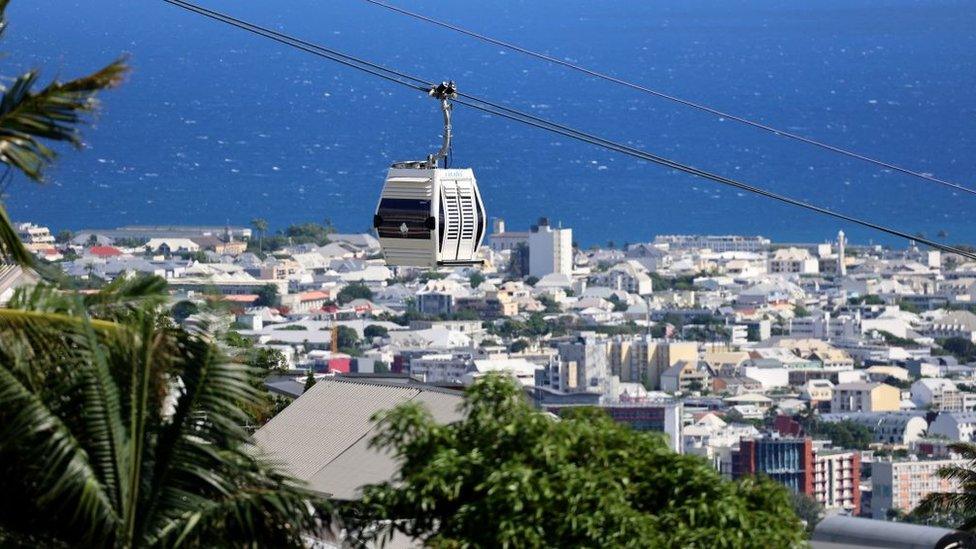
St Denis, the capital, is home to a fifth of the island's population
TV and radio services are provided by the French public overseas broadcaster, RFO.
Press
Le Quotidien
Television
Réunion 1ère, external - public, part of France Télévision
Antenne Reunion, external - private
Radio
Réunion 1ère, external - public, operated by Reseau France Outre-Mer
TIMELINE
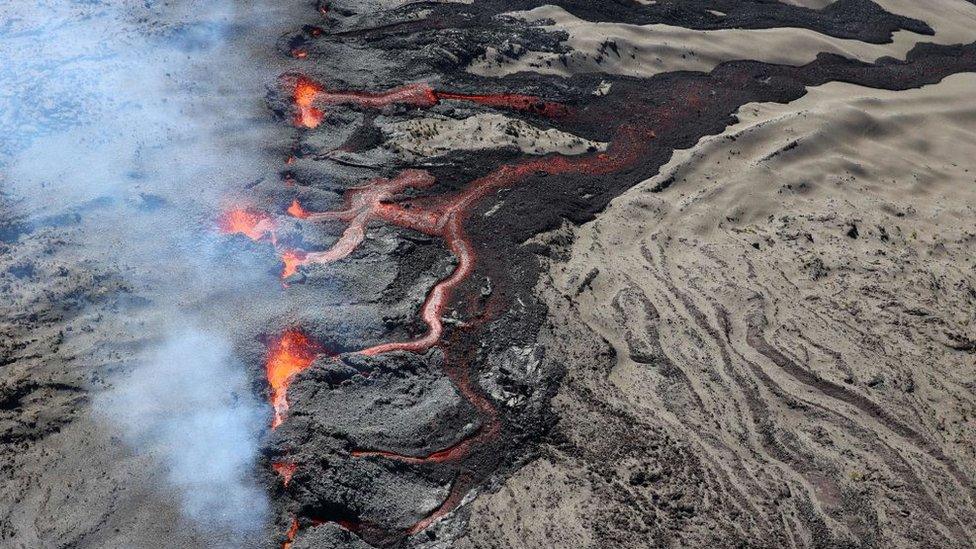
Reunion is home to one of the world's most active volcanoes, the Piton de la Fournaise
Some key dates in Reunion's history:
1512 - Portuguese discover the archipelago of Mauritius, Rodrigues and Reunion - they are collectively named the Mascarenes after the explorer Pedro de Mascarenhas.
1642 - Island officially claimed by Jacques Pronis of France in 1642, when he deported a dozen French mutineers to the island from Madagascar.
1649 - Island is renamed Île Bourbon after the French royal House of Bourbon.
1665 - the French East India Company sends the first settlers. Slaves from East Africa are brought in to work on coffee plantations.
1793 - During the French Revolution, the island's name is changed to Réunion Island" in homage to the meeting of the Federates of Marseille and the National Guards of Paris, during the march on the Tuileries Palace in 1792, and to erase the name of the Bourbon dynasty.
1810-15 - During the Napoleonic Wars, the island is lost to the British, who introduce sugarcane plantations to replace coffee growing, which had been badly affected by cyclones and floods.
1815 - Territory returns to the French under the Treaty of Paris.
1848 - With the abolition of slavery, indentured labourers are imported from South East Asia, India and East Africa.
1870s - Opening of the Suez Canal shifts commercial traffic away from the island, leading to an economic downturn.
1942 - Free French forces seize the island from Vichy control during World War Two.
1946 - Reunion changes from a colony to an overseas department of France.
1963-1982 - Over 2,100 children are taken from Reunion to mainland France to repopulate rural areas. Some were orphans, but others had parents who signed release papers, not always understanding they would never see their children again. Authorities argued they would be getting a better education, but the state did not fulfil its promises. Decades later the national scandal of the "stolen children" broke.
1974 - The island gains the status of French region. Headquarters of the French military in the Indian Ocean are established.
1990s - Wealth inequality and high unemployment trigger demonstrations and violence as islanders seek more political autonomy and better wages and working conditions.
2000 - French government proposal to split the island into two departments is rejected by the French Senate.
2005-2006 - Reunion is hit by a crippling epidemic of chikungunya, a disease spread by mosquitoes. France sends €36m in aid and deploys troops to eradicate mosquitoes on the island
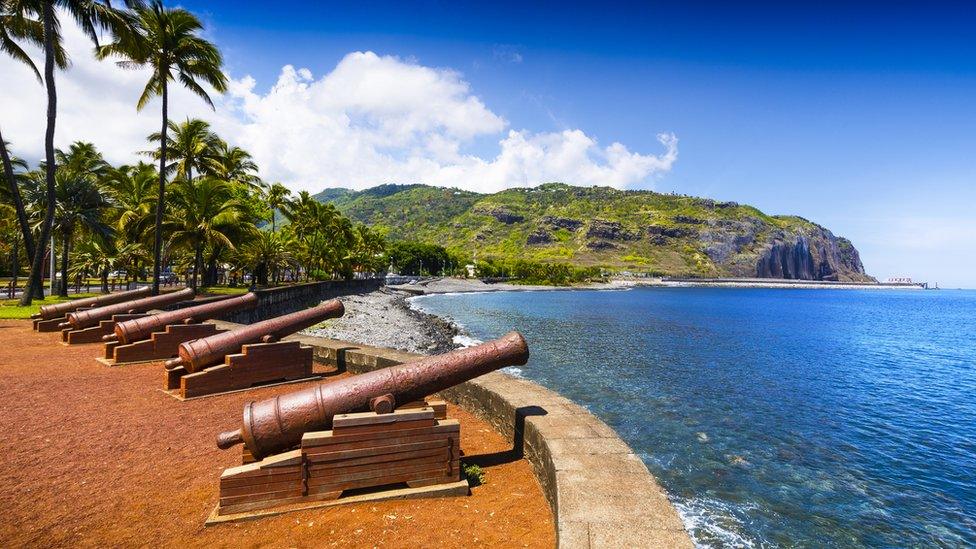
- Published1 December 2023
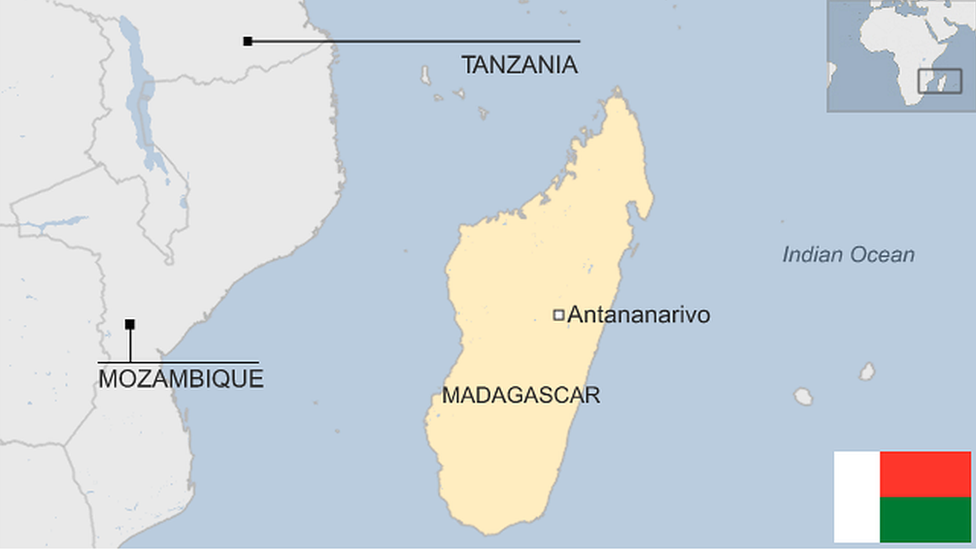
- Published19 January 2024
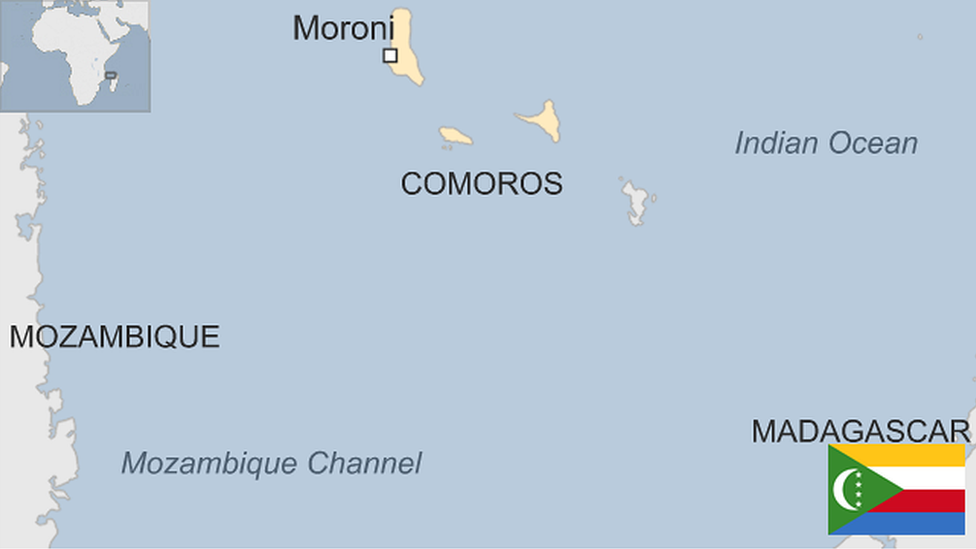
- Published21 July 2023
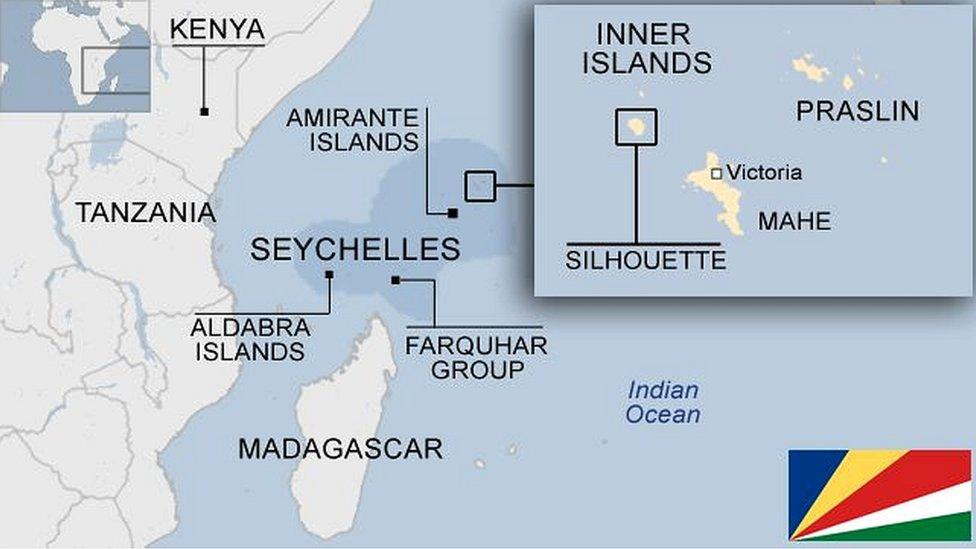
- Published10 March
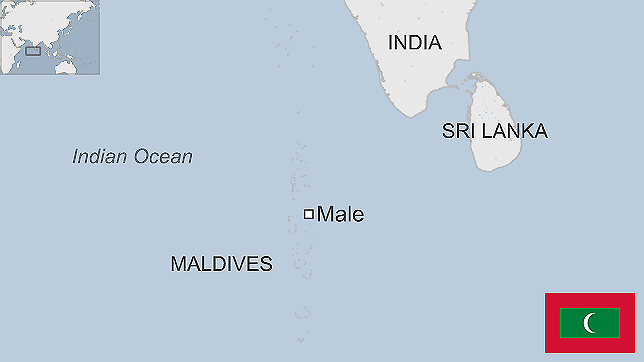
- Published9 October 2024
